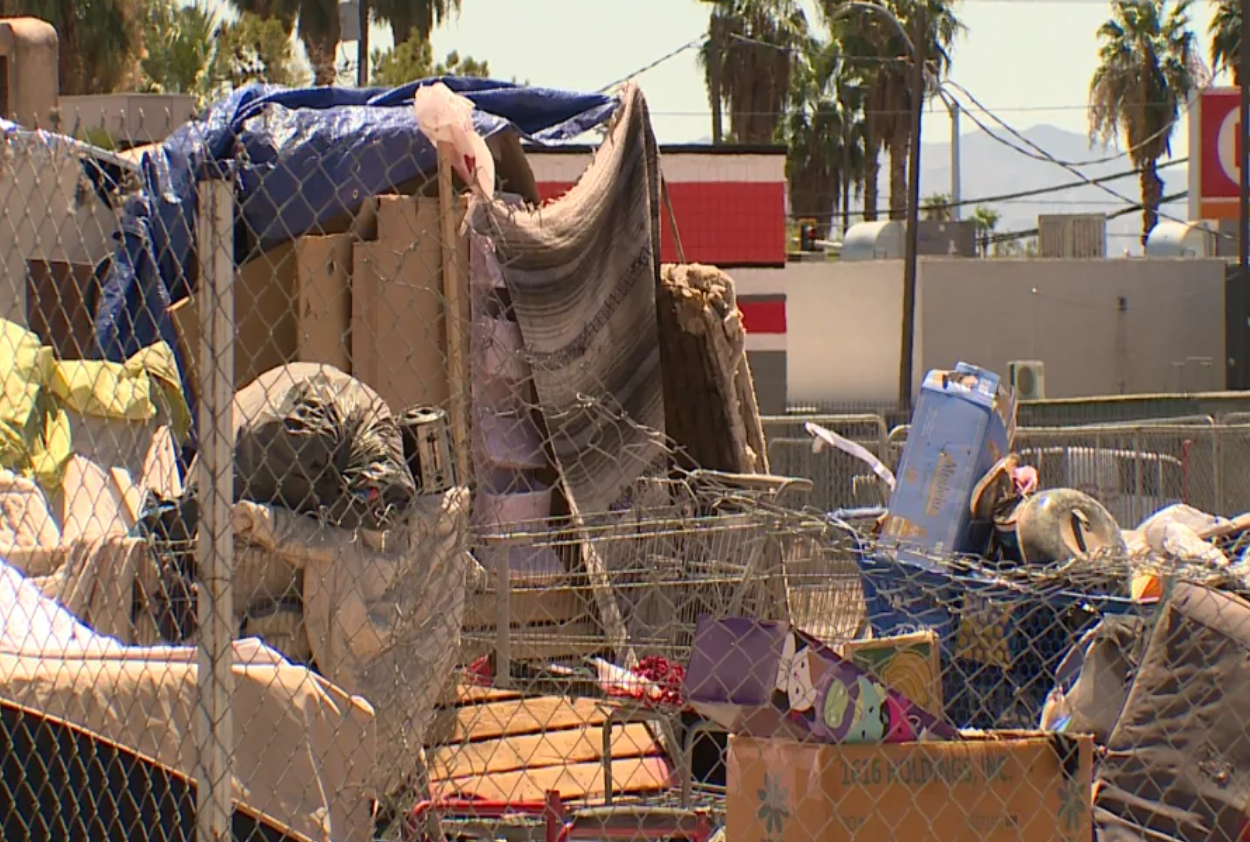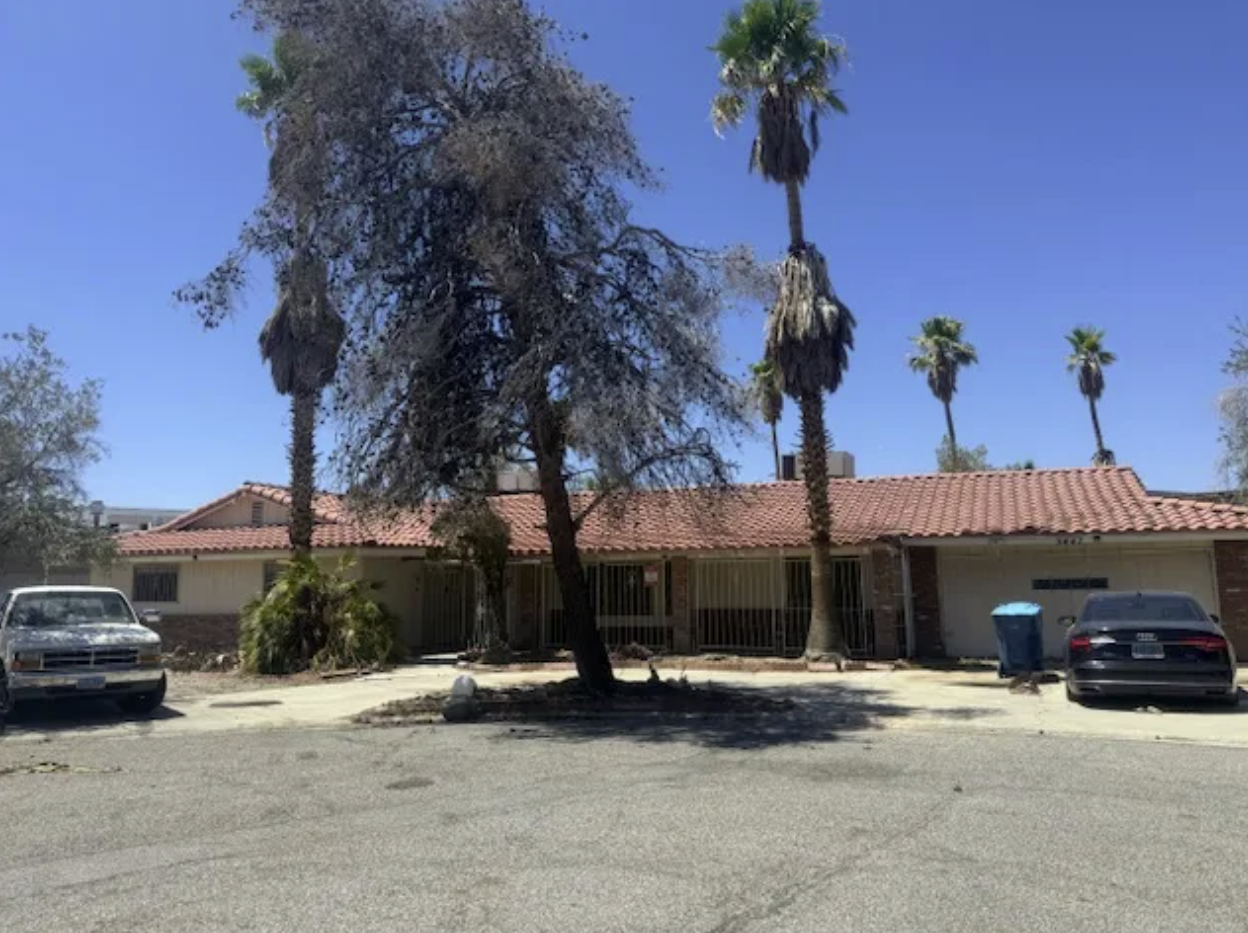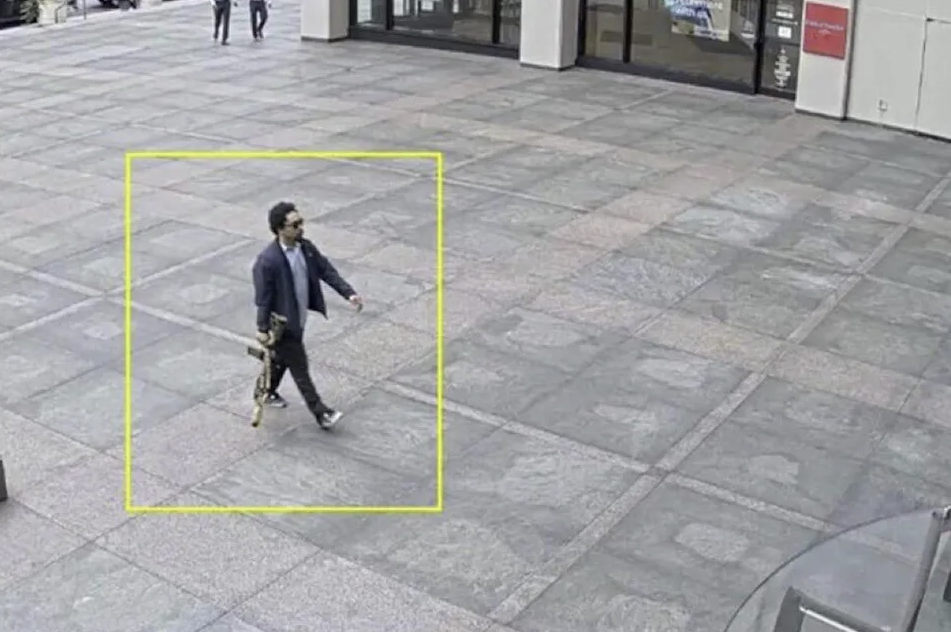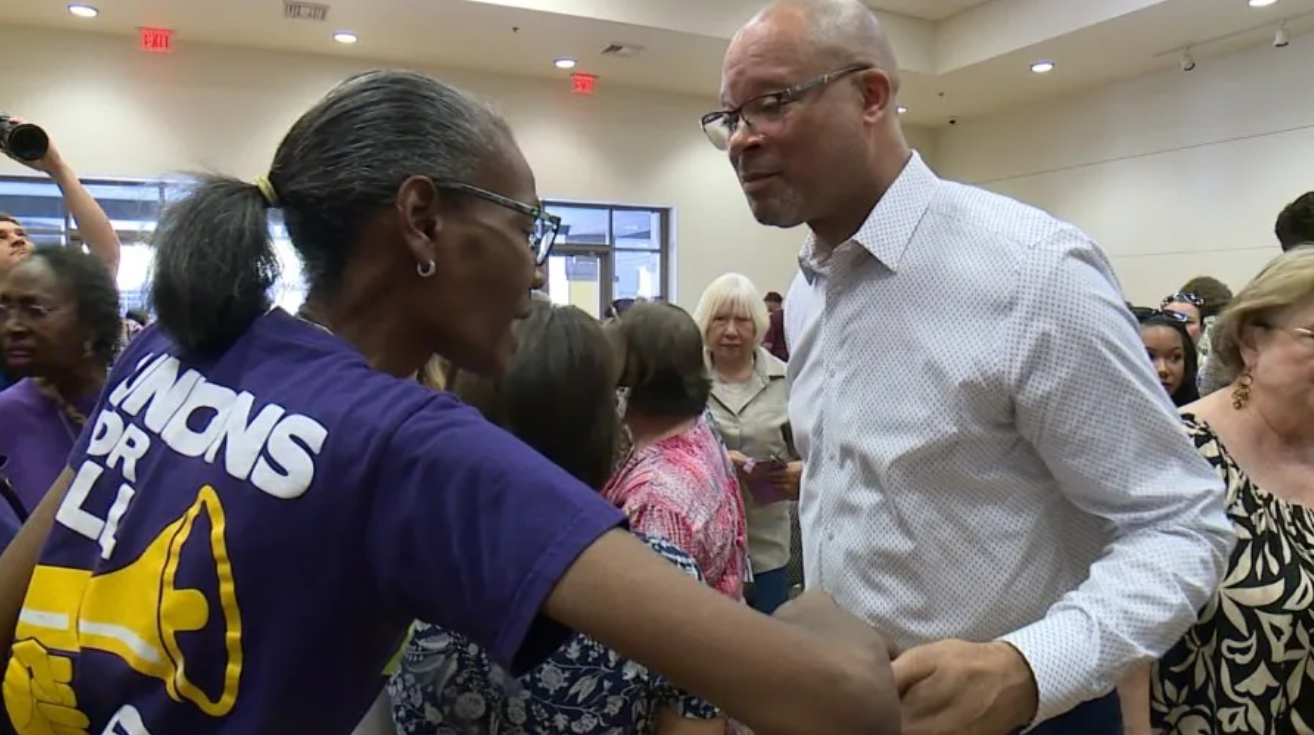Growing homeless encampment sparks outrage at northeast Las Vegas apartment complex

Casa Bonita residents report chaotic conditions as city outreach efforts fail to resolve expanding camp
Residents at the Casa Bonita Apartments on North 23rd Street are demanding immediate action as a homeless encampment across from their complex continues to expand, bringing with it a host of safety concerns and quality-of-life issues that have frustrated both tenants and property management.
From small camp to sprawling crisis
What began as a handful of tents near the intersection of Eastern and Owens avenues has transformed into a large-scale encampment that residents describe as increasingly chaotic and dangerous. The site now features stolen shopping carts filled with belongings, massive piles of garbage, and evidence of open fires—a particular concern during Las Vegas’s hot, dry conditions.
“There is trash everywhere; they hide under my trees in the back. I’ve had to kick a couple people out last week,” said Briana Talbot, property manager for Casa Bonita Apartments, expressing frustration that has been building since the camp’s expansion began at the start of summer 2025.
The growth of the encampment represents a microcosm of Las Vegas’s broader homelessness crisis, which has seen a 55% increase since 2021 according to data from the Southern Nevada Homelessness Continuum of Care. The 2024 point-in-time census showed a 20% increase in a single year, highlighting the accelerating nature of the problem.
Daily life disrupted for families
For families living at Casa Bonita, the encampment has created an environment of fear and disgust that affects their most basic daily activities. An anonymous tenant painted a disturbing picture of the situation: “There will be instances where they will be high, naked, or using the bathroom where our kids play. Our kids are scared to go take the trash to the dumpster because of all this.”
The presence of open drug use and public defecation has transformed what should be safe common areas into zones that parents actively tell their children to avoid. The psychological impact on young residents who witness these activities daily cannot be understated.
Economic impact on property
Beyond the immediate safety concerns, the encampment is having measurable economic effects on the Casa Bonita Apartments. Talbot revealed that the complex is struggling to attract new tenants, with potential residents abandoning the application process once they see the conditions across the street.
“I’ve had a couple applications where people bring back the application blank because they see what’s going on across the street,” Talbot explained, highlighting how the crisis is affecting not just current residents but the property’s ability to maintain occupancy and financial stability.
This pattern reflects broader challenges facing property owners near encampments throughout the valley. During a March 2025 town hall meeting, Tamarus Street rental property managers reported similar issues, with prospective tenants driven away and some properties experiencing squatters moving into vacant units.
The jurisdictional maze
One of the most frustrating aspects for Casa Bonita residents is the complex web of jurisdictional issues that prevent swift action. The encampment sits on privately owned property, creating a legal gray area that limits what city officials and law enforcement can do without the property owner’s explicit cooperation.
“I have called 311 five times, I called code enforcement, I called ward three, and I got no response. It’s very frustrating,” said Joseph Uperti, who handles maintenance for Casa Bonita Apartments. His experience echoes that of many residents who feel caught between an unresponsive bureaucracy and an escalating crisis at their doorstep.
MORE team efforts fall short
The Multi-Agency Outreach Resource Engagement (MORE) team, a partnership between the City of Las Vegas and local law enforcement designed to connect homeless individuals with services, has canvassed the area multiple times over recent weeks. However, their efforts have yielded minimal results.
According to city officials, individuals at the encampment have “repeatedly declined services and resources” offered by both the MORE team and law enforcement. This resistance to assistance represents a common challenge faced by outreach workers throughout the valley.
Mario Guzman, MORE team supervisor, explained their approach: “We meet them where they’re at. Where the conversation was going with him. He shared what he wanted to accomplish, so I’m there to support him and guide him in the right direction.” However, this patient, relationship-building approach often conflicts with residents’ demands for immediate action.
The enforcement challenge
Las Vegas Metropolitan Police Department’s response to the situation has been characterized by residents as “delayed, minimal, or ineffective.” The department’s Homeless Outreach Team, consisting of seven members with embedded social workers from Clark County, faces the challenge of balancing enforcement with compassion.
LVMPD Captain Landon Reyes described their three-pronged approach: educating homeless individuals about available resources, issuing warnings for noncompliance, and, as a last resort, enforcing camping bans. However, the complexity of the law, particularly when dealing with private property, often ties their hands.
The situation is further complicated by Clark County’s new camping ordinance, which went into effect in February 2025. While the ordinance allows for citations or arrests for those who refuse to move or accept available shelter beds, it requires that individuals be offered an available bed first—and no arrest can be made if beds aren’t available or if the person is experiencing a mental health emergency.
Regional efforts and new legislation
The Casa Bonita situation reflects broader challenges across the Las Vegas Valley. Assembly Bill 263, currently moving through the Nevada Legislature, aims to address one aspect of the problem by allowing outreach teams to cross jurisdictional boundaries. This would prevent encampments from simply moving to areas outside a particular agency’s authority—a common occurrence when cleanup efforts begin.
Clark County Commissioner Tick Segerblom, who has been at the forefront of addressing homelessness issues, acknowledged that increased enforcement on the Strip after the pandemic and events like the Formula 1 Las Vegas Grand Prix have “pushed people” toward residential neighborhoods.
The search for solutions
Despite the frustration, various agencies continue to work on both immediate and long-term solutions:
Immediate interventions
- Daily outreach by MORE teams
- Coordination between LVMPD, Clark County, and social service agencies
- Regular cleanup efforts to address health hazards
- 24-hour warning notices before camp clearances
Long-term investments
- Clark County approved over $251 million in November 2024 to develop four additional non-congregate shelters, expected to open by 2027
- $20 million investment in a 96-bed substance addiction treatment center
- The state-approved Campus for Hope, a 26-acre facility with 900 beds planned for Charleston and Jones boulevards
- Expansion of rental assistance programs to prevent evictions
The human element
While residents’ frustrations are valid and their safety concerns paramount, the crisis also highlights the human tragedy of homelessness. Many individuals in encampments struggle with mental health issues, substance abuse, and trauma that make accepting traditional shelter challenging.
HELP of Southern Nevada CEO Fuilala Riley emphasized the importance of education and trust-building: “The street outreach teams have the trust of a lot of the unhoused. If we could be able to communicate effectively with them, it might be received a little better than from our partners at Metro.”
Looking forward
As Casa Bonita residents continue to advocate for action, their situation represents a critical test of Las Vegas’s ability to balance compassion with public safety. The expansion of the encampment from “a few tents” to a sprawling site demonstrates how quickly these situations can escalate without effective intervention.
The coming months will be crucial. With new facilities in development but still years away, and current shelters often at capacity, the immediate future offers limited relief for neighborhoods like Casa Bonita. The success of Assembly Bill 263 and the effectiveness of increased funding for services will determine whether situations like this become more manageable or continue to proliferate across the valley.
For now, families at Casa Bonita continue to navigate a daily reality where children fear taking out the trash, potential tenants turn away at the sight of the encampment, and frustrated calls to authorities yield little immediate relief. Their story is not unique in Las Vegas, but it serves as a stark reminder of the human cost—on all sides—of the region’s growing homelessness crisis.
Image Sources: https://www.yahoo.com/news/articles/las-vegas-residents-demand-action-000800041.html
Category: Local News
Subcategory: Community Issues
Date: 07/30/2025




